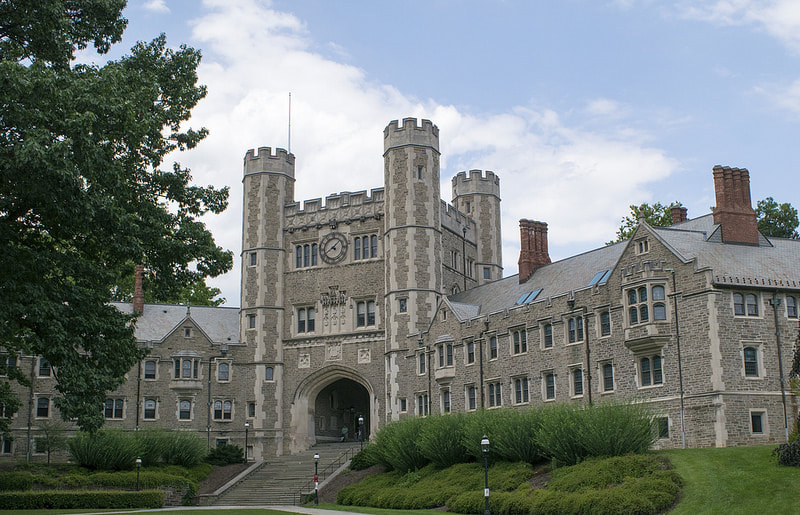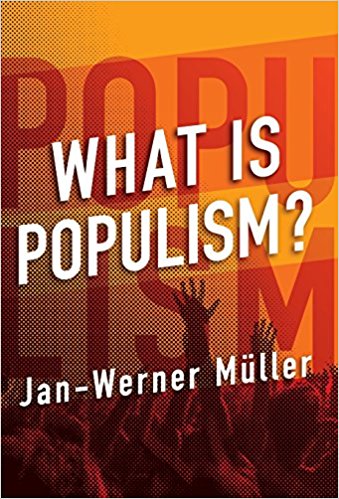|
As the young folks like to say, "YASSSSS!"
As a college counselor and life coach for gifted teenagers, a social scientist who values the scientific method and the quest for truth, and simply a concerned citizen, I have watched with growing alarm as American universities have spiraled out of control. After Berkeley announced it had literally installed escape hatches so administrators could stay safe during violent student protests and Evergreen State College was shut down when police could no longer assure public safety, I knew that something would have to change. Indeed, Princeton President Christopher L. Eisgruber started the academic year with a strong message for incoming freshmen. After assigning Jan-Werner Müller’s What is Populism?, he used his opening exercises speech to discuss how populism is at odds with the foundational principles of both the United States and this University. Specifically, he said: [Professor Muller] argues that populism is anti-pluralist, and that populist leaders act as though “anyone who does not support them is not properly part of the people” (p. 101). Next, he tied this in to what happened in Charlottesville this summer -- and then, a call for students to think critically and for themselves: Some people have suggested that the University should issue an official statement about Charlottesville, or that I should use this occasion to pass judgment upon President Trump’s comments. The events and the president’s response troubled me profoundly, and it is tempting to share my thoughts with you in detail. It is, however, neither my role nor that of the University to prescribe how you should react to this controversy or others. It is rather my role and the role of the University to encourage you to think deeply about what these events mean for this country and its core values, and to encourage you to find ways to participate constructively in the national dialogue they have generated. Rather than ramble on about safe spaces and trigger warnings, he reminds students: This emphasis on independent thinking is at the heart of liberal arts education. It is a profoundly valuable form of education, and it can be exhilarating. It can also at times be uncomfortable or upsetting because it requires careful and respectful engagement with views very different from your own. I have already emphasized that we value pluralism at Princeton; we value it partly because of the vigorous disagreements that it generates. You will meet people here who think differently than you do about politics, history, justice, race, religion, and a host of other sensitive topics. To take full advantage of a Princeton education, you must learn and benefit from these disagreements, and to do that you must cultivate and practice the art of constructive disagreement. On the topic of free speech, he said: I disagree with people who consider inclusivity and free speech to be competing commitments. I believe exactly the opposite, namely, that if we are to have meaningful conversations about difficult topics on university campuses and in this country, we must care passionately both about the inclusivity that enables people to trust and respect one another and about the freedom of speech that encourages the expression of competing ideas. And reminds students that they don't have to be militant and belligerent all the time: Even in a University that thrives on disagreement, you need not rise to every provocation. As you speak with classmates and others, you may sometimes choose to focus on developing relationships, deferring vigorous debate for another day and a more promising moment. Wait, so... you don't have to scream at professors you disagree with... about Halloween costumes? You don't have to accost and assault people whose haircut you don't like? You can just... agree to disagree? Walk away? Save it for another day? Pick your battles wisely? Not get offended by everything? That sounds so... civil. I'm glad. I'm really glad. And I hope the students were paying attention. *** Want to know more? Don't miss:
2 Comments
Liz
9/13/2017 01:26:46 pm
Glad to read it. You might like this excerpt from an email from the new chancellor at Berkeley about the importance of free speech. It's about the only good thing to come out of Berkeley recently, especially the part about inner resilience:
Reply
Jadzia
9/14/2017 02:45:32 am
One thing I find amazing is that students get away with this kind of behaviour. We've had problems in the UK with students trying to shut down speakers they don't like, which is a problem but its usually a battle with other students and an external speaker. I have been to a couple of different unis and I could not imagine a student getting away with screaming abuse at members of staff. I could be wrong because I never tried it and don't know anyone who did but I think it would have led to disciplinary action.
Reply
Leave a Reply. |
About the Author

Eva is a content specialist with a passion for play, travel... and a little bit of girl power. Read more >
Want to support The Happy Talent? CLICK HERE!
Or Find me on Patreon!
What's Popular on The Happy Talent:
Trending in Dating and Relationships:
What's Popular in Science: Playfulness and Leisure Skills:
Popular in Psychology and Social Skills:
Categories
All
|



























 RSS Feed
RSS Feed